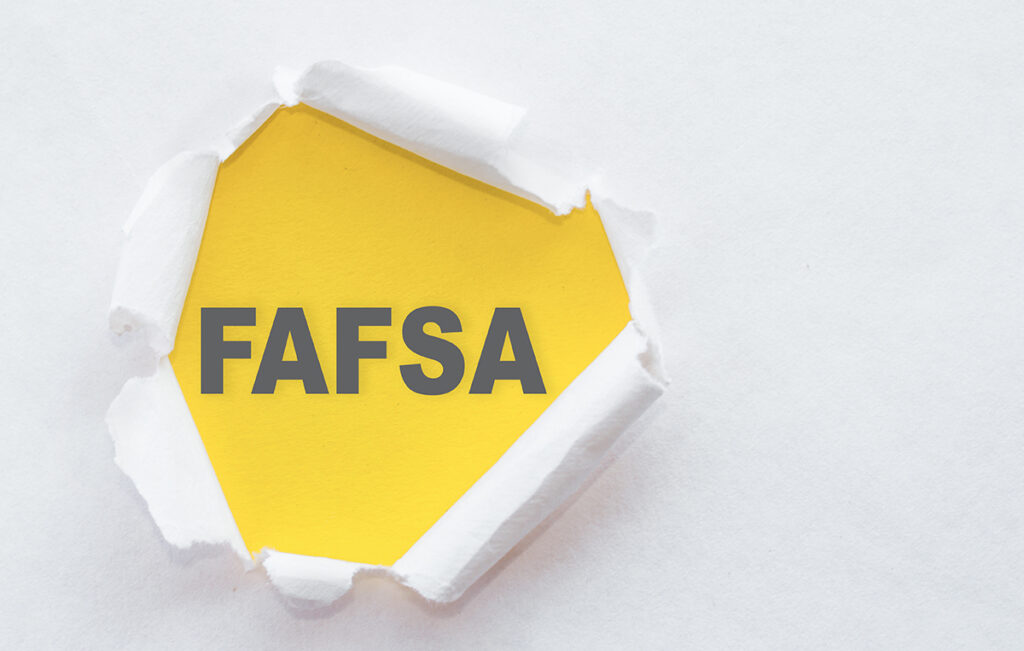The Free Application for Federal Student Aid, or FAFSA, is an application administered by the U.S. Department of Education which helps determine financial support eligibility for college students.
If you or your student have tried to complete the FAFSA form and were unable to access or submit, you’re not alone.
The good news is that the online form has opened up for submissions. However, the Federal Student Aid website indicates “we may initiate pauses for site maintenance,” so be prepared for down times. Similar to previous years, the process will still require an FSA ID.
Submitted applications are beginning to filter to our member colleges. While the process may be frustrating, we do suggest applying as soon as you can to lock into the best possible funding for your family.
There is no doubt that this is indeed a maddening process. Iowa’s non-profit colleges and universities share the frustration of students and parents because of the U.S. Department of Education’s failed implementation of the revised FAFSA. But we are here to help as best we can.

FAFSA: Free Application for Federal Student Aid.
NOTE: Annual Deadline is June 30th by 11:59 P.M. CST. Students who are dependents of their parents complete the application with financial information of their own and their parents. Students who are considered independents complete the application using only their financial information. Once the application has been reviewed, a Student Aid Index – or SAI – is determined. The SAI is an estimate of how much money a student or their parents can afford to pay for school. With this information, schools are able to identify what kind of loans, grants and scholarships can be provided to students.
Why It’s Important
If you do not complete a FAFSA, your financial aid options are extremely limited. You will also miss out on potential scholarship opportunities. Even if you do not believe you will receive any aid in the form of loans or grants, scholarships and merit-based aid packages are often times only provided to students who complete a FAFSA. In fact, 1 in 4 families do not apply for FAFSA with the majority stating that they did not believe they would receive aid. At its core, the FAFSA is a base discovery tool in ensuring your tuition rate is the lowest it can possibly be.
The Application Process
Each year, students will need to complete a FAFSA to determine their financial aid eligibility. Even if you completed a FAFSA your freshman year, you’ll need to continue applying each year of school, as your family’s financial situation may change. Here is the general application process and what to expect:
- ONE: Prepare your financial information and your parents’ information as well if you are a dependent
- TWO: Create an FSA ID at fsaid.ed.gov to log into the FAFSA portal and electronically sign your application – if you are a dependent, your parents will need to set up one as well
- THREE: Complete your FAFSA application at fafsa.gov and be sure to notate your top schools
- FOUR: You will receive your Student Aid Report in an email confirming that your form was received and include preliminary information related to your eligibility for federal student aid. It will also include your estimated Student Aid Index (SAI) and estimated eligibility for Federal Pell Grants. FAFSA eligibility information will be provided to schools and states in the first half of March.
- FIVE: A financial aid award letter will be provided by your top schools once your school application has been accepted and FAFSA eligibility information has been provided – this will outline the loans, grants and scholarships available to you from their institution, including the Iowa Tuition Grant.
More detailed information about the current FAFSA process can be found here: https://studentaid.gov/announcements-events/fafsa-support
Helpful Tools
Learn more about the Iowa Tuition Grant and eligibility criteria by visiting our Iowa Tuition Grant page.
For more information about financial aid options and criteria for Iowans, visit iowacollegeaid.gov
Watch helpful FAFSA YouTube videos, courtesy of studentaid.gov
